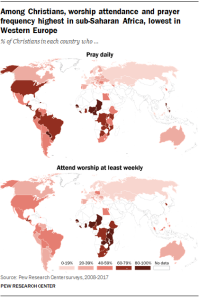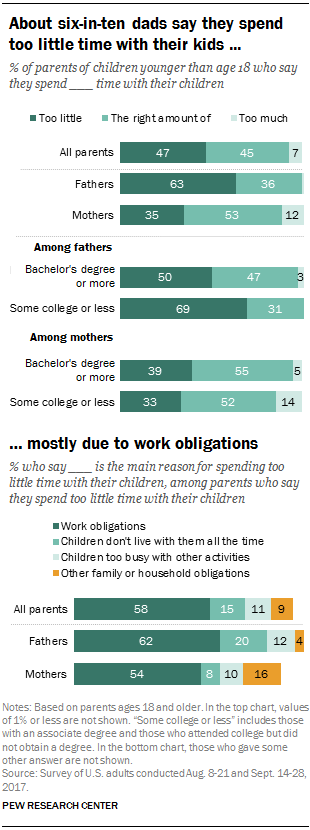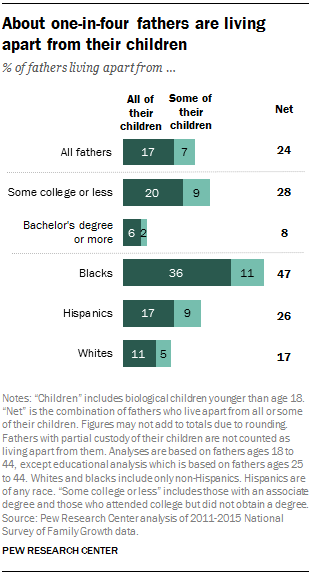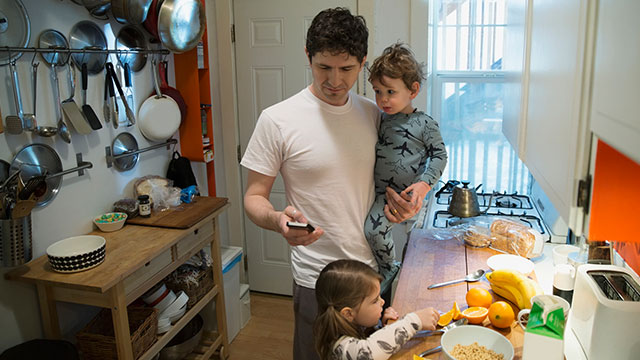

U.S. fathers today are spending more time caring for their children than they did a half-century ago. Still, most (63%) say they spend too little time with their kids and a much smaller share (36%) say they spend the right amount of time with them, according to a Pew Research Center survey conducted in August and September 2017.
Moms, by comparison, still do more of the child care and are more likely than dads to say they are satisfied with the amount of time they spend with their kids. About half (53%) say this, while only 35% say they spend too little time with their children, according to the survey.
Fathers without a bachelor’s degree are particularly likely to say they spend too little time with their kids. About seven-in-ten dads with some college or less education (69%) say this is the case, compared with half of dads with at least a bachelor’s degree.
Education is not a factor when it comes to the share of mothers who say they spend too little time with their children, but employment status is: 43% of full-time working moms say they don’t spend enough time with their kids, compared with 28% of moms who work part time or who are not employed.
For both dads and moms who say they spend too little time with their kids, work obligations are cited most often as the main reason: 62% of dads and 54% of moms say this is the case. However, a sizable share of fathers (20%) say the main reason they spend too little time with their children is that they don’t live with them full-time.

These findings come as about one-in-four fathers of children 17 or younger (24%) are living apart from at least one of their children, and 17% are living apart from all of them, according to a Pew Research Center analysis of data from the National Survey of Family Growth.
Education is strongly linked to the likelihood that a dad will be living apart from his children. Fathers who lack a four-year college degree are especially likely to be living apart from their kids: 28% in this group are, compared with just 8% of fathers with a bachelor’s degree or more education.
Differences along racial and ethnic lines are even more dramatic. About half of black fathers (47%) are living apart from at least one of their children ages 17 or younger, and 36% are living apart from all of their children. Far lower shares of Hispanic (26%) and white (17%) fathers are living apart from one or more of their children.
Note: See full topline results here (PDF).
